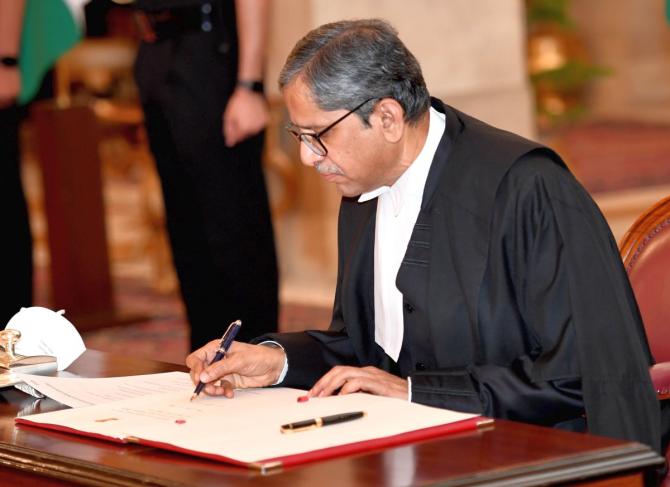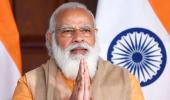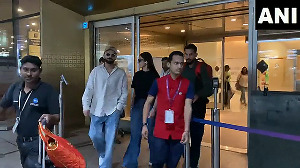"Day in day out there exists a misconception in the minds of people that judges stay in big bungalows, work only 10 AM to 4 PM and enjoy their holidays. Such a narrative is untrue," Chief Justice N V Ramana said on Thursday while paying glowing tributes to Justice Rohinton Fali Nariman on his superannuation after over seven years at the Supreme Court bench.

Chief Justice of India N V Ramana Thursday said that false narratives and misconception created in minds of the people that judges supposedly lead an easy life need to be refuted by educating the public about the work put by them with limited resources.
The CJI said the most obvious sacrifice to become a judge is monetary of course but one must be moved by the spirit of public duty to take such a decision.
Justice Ramana, who was speaking at a farewell function of Justice R F Nariman organised by the Supreme Court Bar Association (SCBA), said that it is important for judges to stay in touch with the society and not remained completely secluded.
However, he said the undeniable fact is that "our engagement with society undergoes drastic change when we become a judge."
"Day in day out there exists a misconception in the minds of people that judges stay in big bungalows, work only 10 AM to 4 PM and enjoy their holidays. Such a narrative is untrue. It is not easy to prepare for more than 100 cases a week, listen to arguments while also dealing with administrative duties," the CJI said adding that judges continue to work even during court holidays, do research and complete pending judgements.
"Therefore when false narratives are created about supposedly easy life led by judges, it is difficult to swallow. We cannot defend ourselves. It is duty of the Bar to refute these false narratives and educate the public about the work put by judges with limited resources," the CJI said.
Justice Nariman said he was leaving the institution with mixed feelings.
"Now I won't have files waiting for me when I wake up at 6 in the morning. Although I'll still wake up but follow a routine like ordinary citizens," he said.
Sharing his experience, Justice Nariman said when he was at the Bar he had no idea how it would be like at the bench.
"This side (as a judge) is much more difficult than a lawyer. You have to read much, much more. I enjoyed writing judgements and at the end it worked out well," he said.
Attorney General K K Venugopal said Justice Nariman is a jurist par excellence, expert in constitutional law, commercial and tax law and also a religious scholar.
Venugopal said Justice Nariman is one of the finest legal minds and one of the finest judges which the apex court has had.
"Justice Nariman is a constitutional czar par excellence", he said.
SCBA president and senior advocate Vikas Singh said his retirement evokes mixed feelings in him.
"It's my privilege that I am hosting this event of his retirement but also it's our loss that we are losing a brilliant judge today. Justice Nariman's one day salary as a lawyer is more than what he earned in these seven years as a Supreme Court judge. That is what he sacrificed," he said.
The senior advocate requested the Collegium that all the judges Justice Nariman wanted to be elevated to the top court should be cleared and that will be the most befitting tribute.
"I urge CJI Ramana that a quota for woman judges be introduced and that is the way to have more women judges in the Supreme Court," Singh said.
SCBA Vice President Pradeep Rai, secretary Ardhendumauli Kumar Prasad also spoke on the occasion.
Apex court judges Justice U U Lalit, S K Kaul, V Ramasubramanian, A M Khanwilkar, B R Gawai, Navin Sinha and Solicitor General Tushar Mehta were also present on the occasion.
Justice Nariman, who became the apex court judge on July 7, 2014, disposed of over 13,500 cases and delivered historic verdicts including declaration of privacy as fundamental right, setting aside of IT Act provision empowering arrests, decriminalising consensual gay sex and permitting women of all ages to enter Kerala's Sabarimala temple.
Justice Nariman, born on August 13, 1956, became a senior lawyer in 1993 and Solicitor General of India on July 27, 2011 before being elevated as the judge of the apex court on July 7, 2014.











